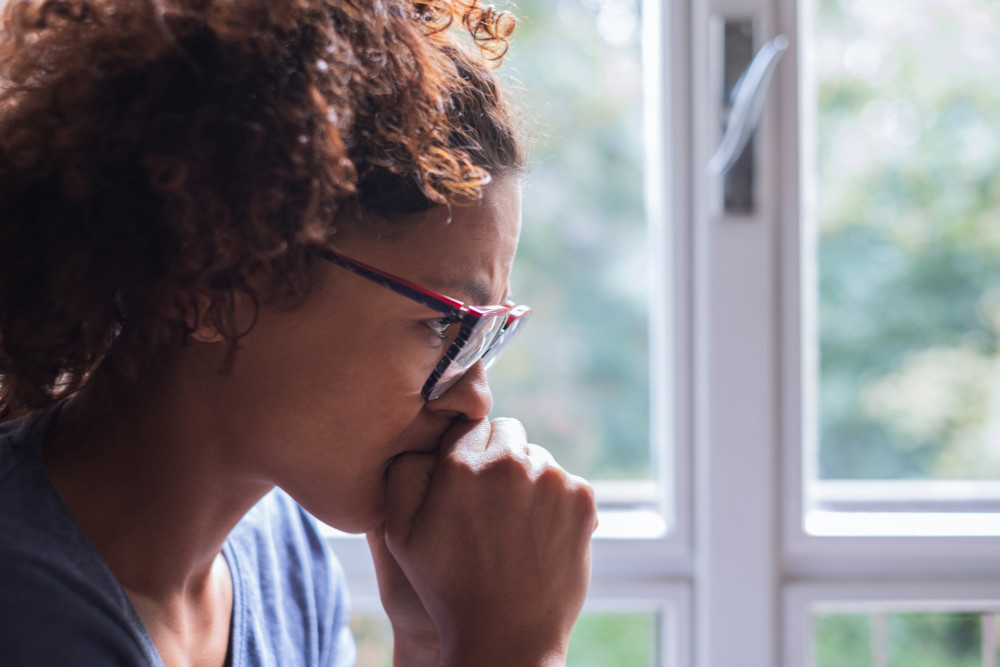By Alison Bowen
Chicago Tribune
WWR Article Summary (tl;dr) As Alison Bowen reports, “The coronavirus pandemic is eliminating the normalcy of daily activities, and that can be difficult to cope with.”
CHICAGO
As more Americans are encouraged to practice social distancing and to work from home, less person-to-person contact can negatively impact mental wellness.
Deciding whether to visit family, have loved ones over, or leave the house for any reason is a real concern since President Donald Trump declared a national emergency over the coronavirus Friday.
Andrea Graham, an assistant professor of medical social sciences at Northwestern University Feinberg School of Medicine, said it is hard to live in a space of uncertainty.
“That’s very challenging for people to be wrestling with those kinds of decisions, and whether to be with loved ones,” she said. “These kinds of moments can lead to … waves of ups and downs of emotions.”
Joe Sislow, a Chicago resident, said he and his wife, Lori Gentile, have been going back and forth on whether to visit her mother in northwest Indiana.
“We’re totally weighing the calculus on this,” he said. “Because odds are in a week, or two weeks, it’s going to be worse.”
With schools, bars and restaurants closing, so much feels in flux. Gentile runs a comic book store, Amazing Fantasy, in Frankfort, Illinois, that she might have to close for a while, said Sislow.
“She’ll probably go stir crazy, she’s been doing that for 30 years,” he said.
The coronavirus pandemic is eliminating the normalcy of daily activities, and that can be difficult to cope with.
On Sunday, the Centers for Disease Control and Prevention recommended gatherings with 50 or more people be canceled or postponed for the next eight weeks, and that events of any size adhere to the guidelines “for protecting vulnerable populations, hand hygiene, and social distancing.” It also suggested more events go virtual.
“We like to go to estate sales, we like to go to museums, we like to go out to see shows,” Sislow said. And now many of those activities are no longer an option for him and his wife.
Graham suggests ensuring regular contact with family members and friends, even if it is not face-to-face. Utilize FaceTime to connect, she said, or make sure to speak on the phone.
“Those are really important ways to buffer against some of that loneliness and sadness that can creep up,” she said.
If you’re working remotely, use the option to call or video chat with a co-worker. It can help lessen some of the social isolation because, for many, conversations with co-workers are a nice part of the work day.
“We don’t typically quantify that when we go into work every day, but that’s part of the routine that’s important,” Graham said.
Try to view time at home as a positive. Focus on connecting with your family. Pick up that hobby you have been considering, or take on that home project you’ve put off.
And make a routine.
Wake up at the same time, go to bed at the same time. “Maintaining some kind of schedule can be really impactful in a positive way for our mood,” Graham said.
Pay attention to how you are feeling. If you are more anxious, Graham suggests taking a break from the news. “Practice some relaxation activities,” she says. Do things you enjoy, such as listening to music, reading a book, or calling a friend.
In the CDC’s tips for mental wellness during the COVID-19 spread, it noted that people who might respond more strongly to the stress of a crisis include children and teens, those with preexisting mental health conditions and substance abuse problems, or those helping with the response, such as health care providers or first responders.
Reactions can include fear and worry about one’s own health status and their loved ones; changes in sleep or eating patterns; difficulty concentrating; increased use of alcohol, tobacco or other drugs and worsening of chronic health problems.
People with preexisting mental health conditions should continue their treatment plans, the CDC suggested.
The agency also advised avoiding excessive exposure to media coverage and encouraged deep breaths, stretching and meditation. Try to eat well and exercise regularly. There are many online resources for fitness, including YouTube videos for yoga, Pilates and Zumba, for example, or Darabee, which provides a host of in-home workout programs. You can also dig out those weights and elastic bands.
“Remind yourself that strong feelings will fade,” the CDC guidance advised. “It can be upsetting to hear about the crisis and see images repeatedly. Try to do some other activities you enjoy to return to your normal life.”
___
Distributed by Tribune Content Agency, LLC.














































































































































































































































































































































































